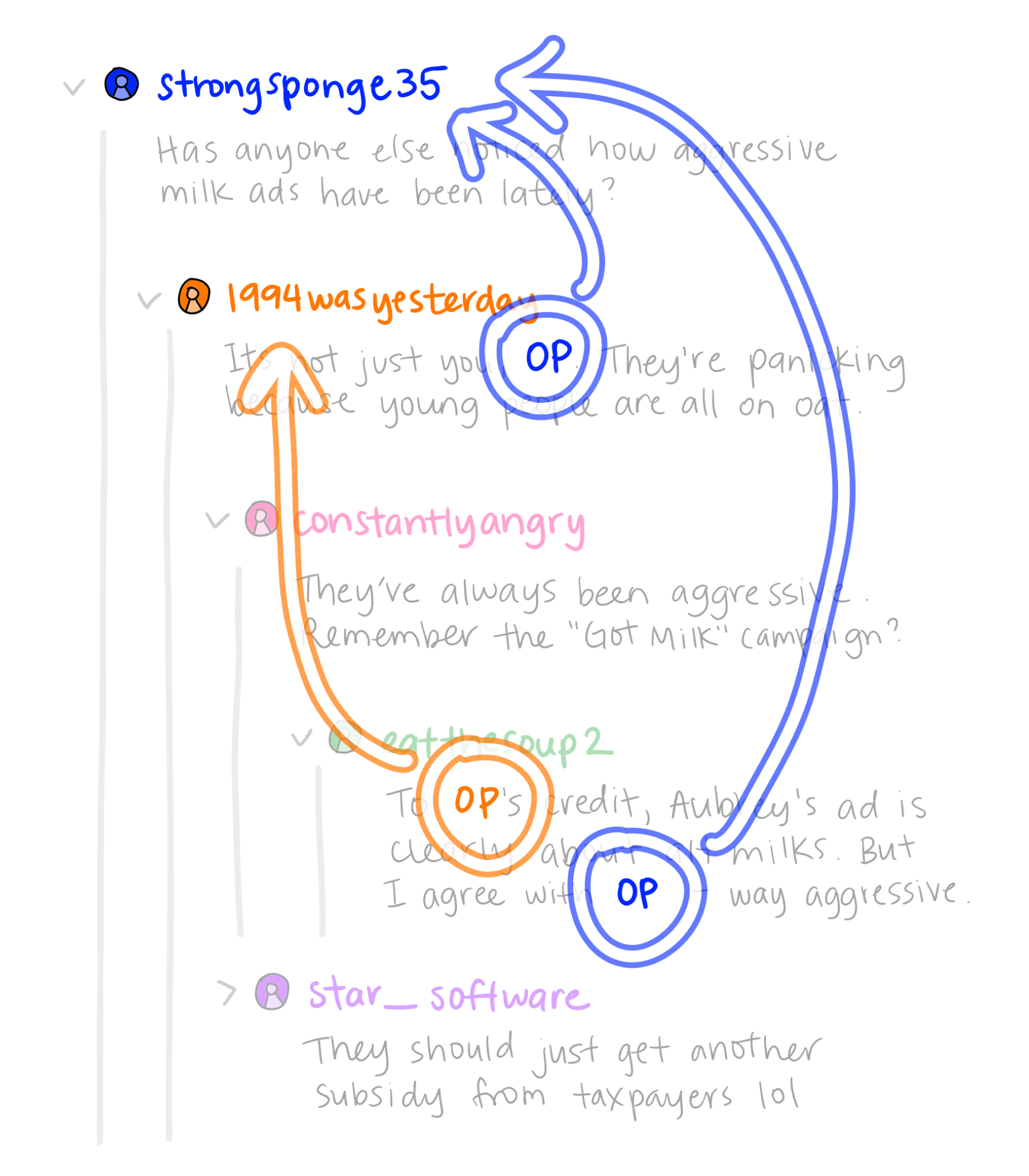OP as a neologism
The acronym “OP” gets used a lot on forums, meaning “Original Poster”. It’s a heavily contextual acronym though, because it can refer to multiple people. It’s effectively a universal pronoun that gets assigned to any previous commentor on a thread – whether that’s the person who started the post, the thread within the post, or just commented somewhere between. Context is needed to decipher who exactly a commentor is referring to when they say “OP”.

The one catch is that the person you call “OP” must precede your comment in that specific thread – it doesn’t work if you are referring to another commentor on a different thread on the same post. Green can refer to orange as OP above, but purple cannot refer to green as OP because they’ve split threads.
As you can imagine, this gets confusing quick – you’ll even see people use “OOP” (original original poster) to differentiate between a poster/parent-level commentor and a commentor in the thread. It works, though, and it’s wholly built on the interaction model of forums being thread-based, where you can view branches of conversations based on which comments you expand.
That being said, branches within threads that are shown coherently in the UI are fairly new. Before branch-based threads, everyone was on one single thread, always. It makes me wonder whether the use of OP has shifted in that transition: maybe it started as referring only to the top-level poster, but as branching became more ubiquitous (Reddit, Hackernews, etc.), it became easier to use context clues to refer to others in that branch as OP as well.
For now, that’s just a hypothesis, but it’s interenting how the UI has informed our mental models, which in turn inform the vocabulary we use. This is the kind of thing I’d want to study if I went back to school.